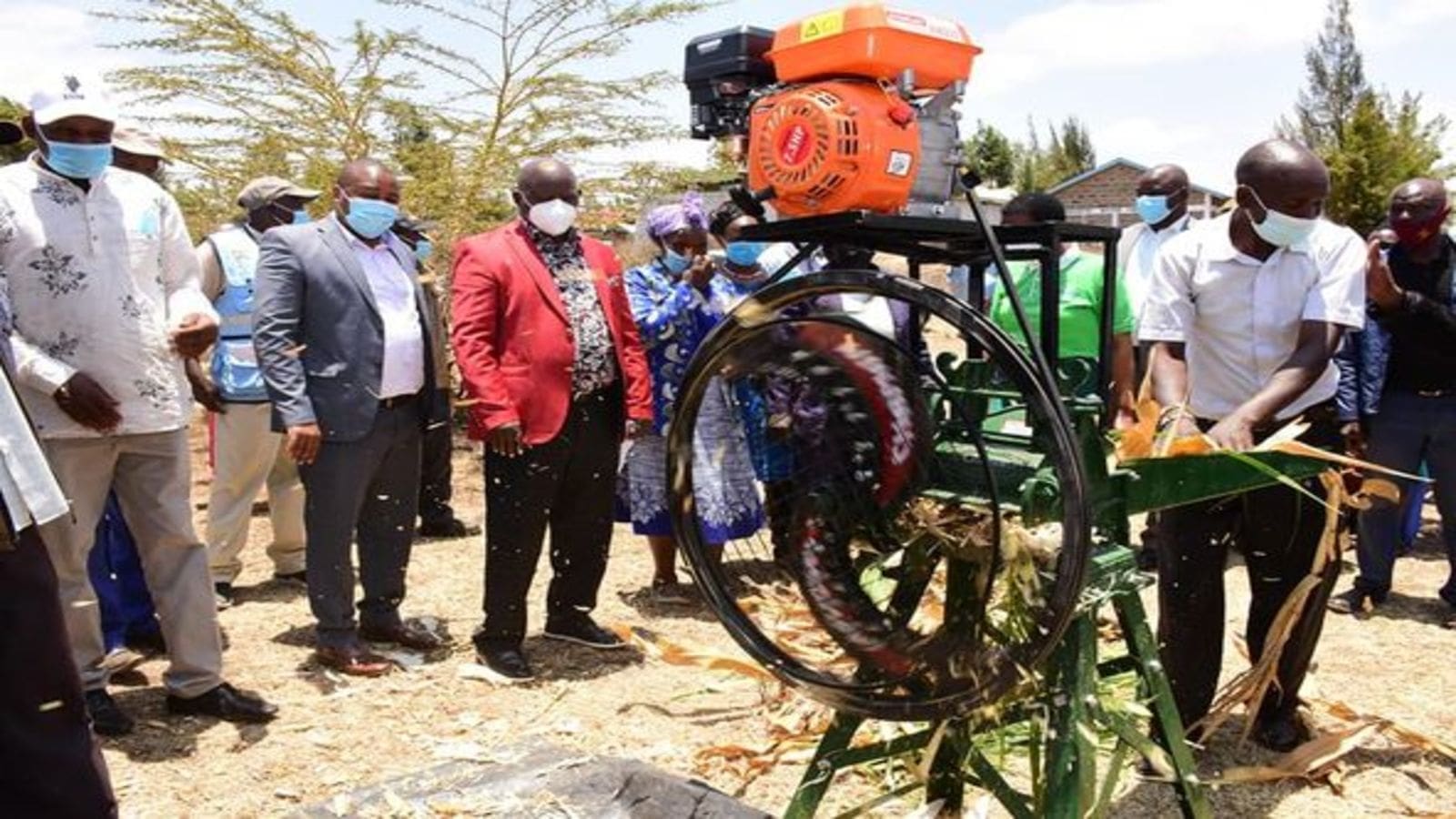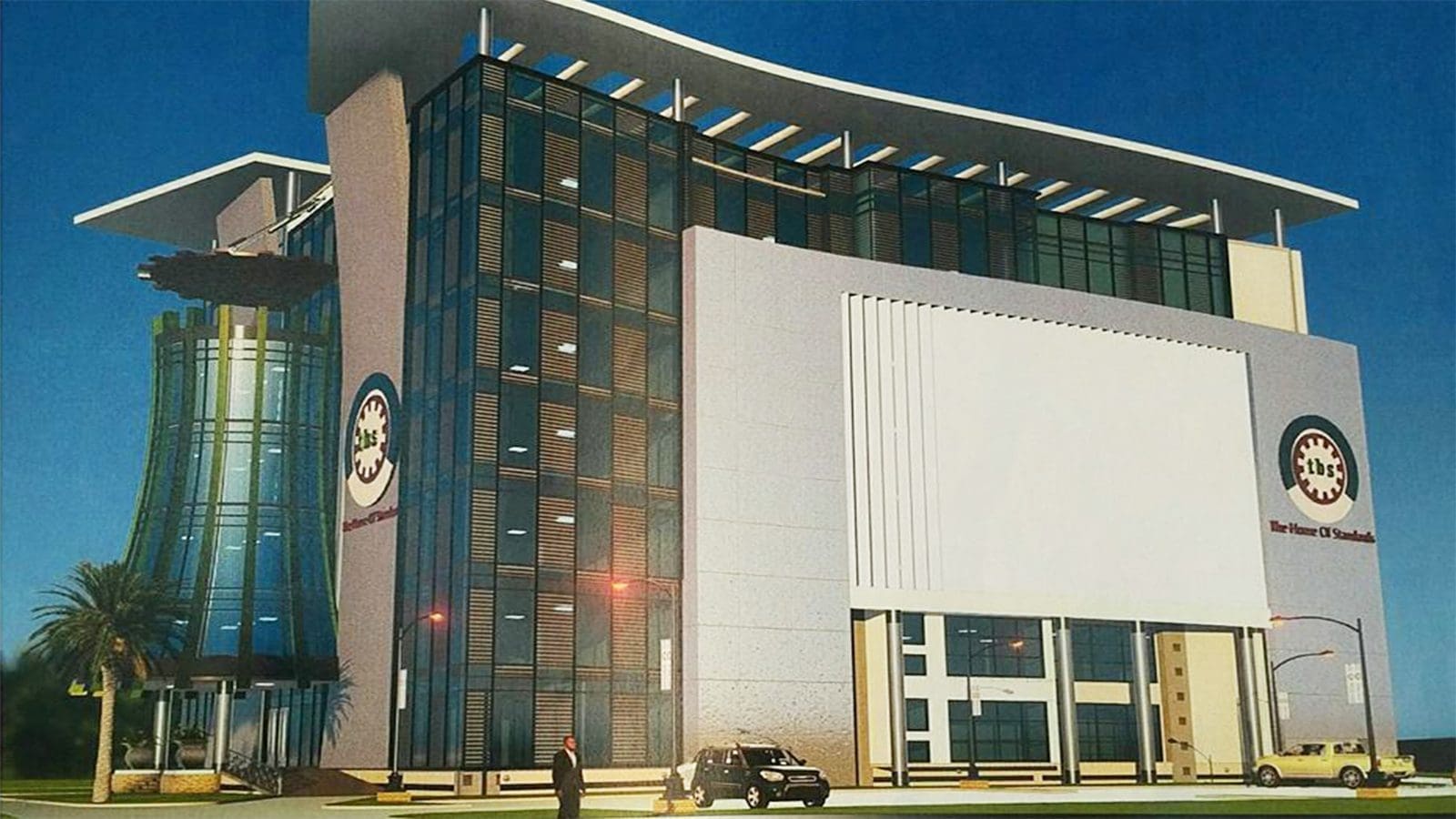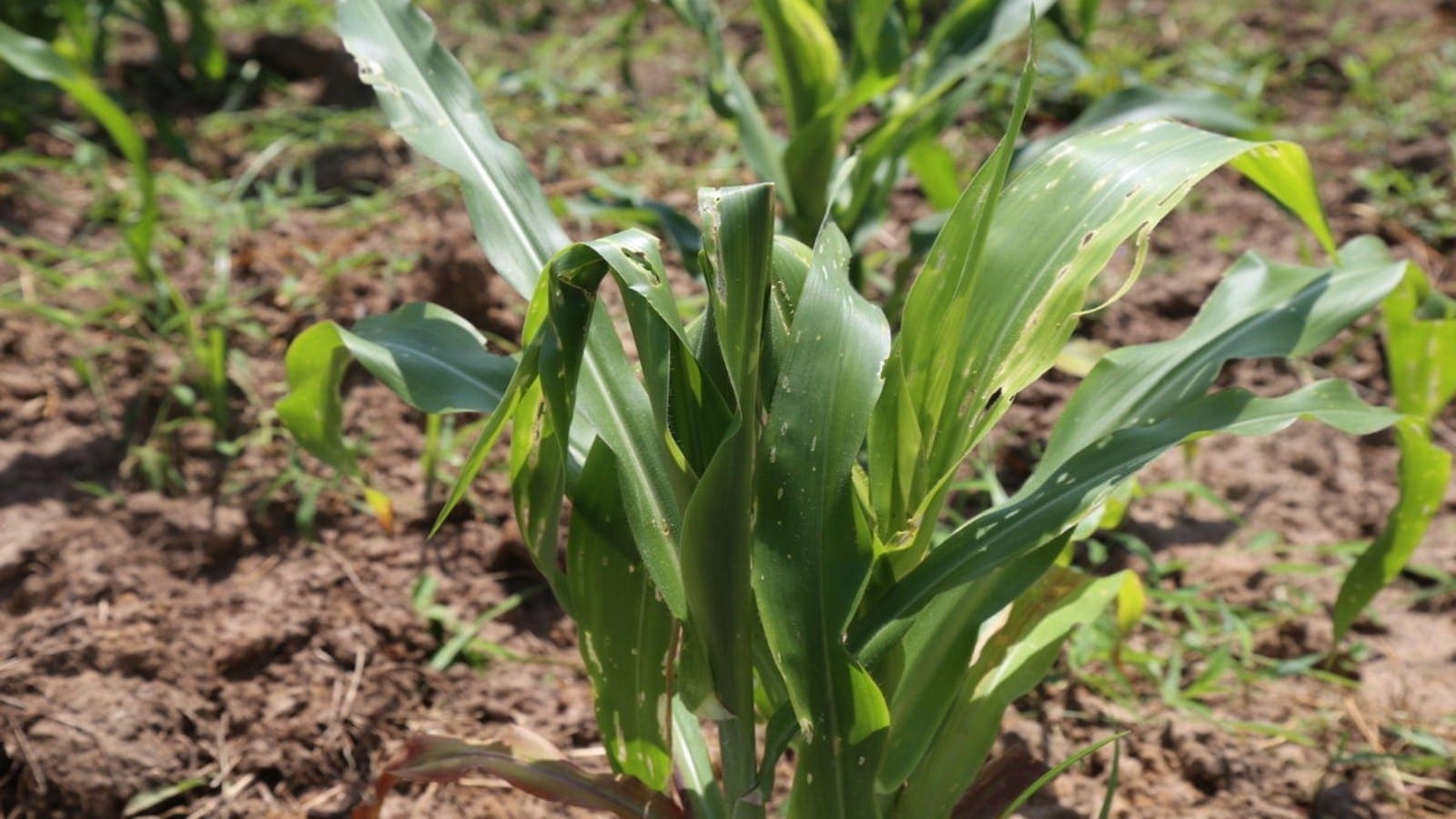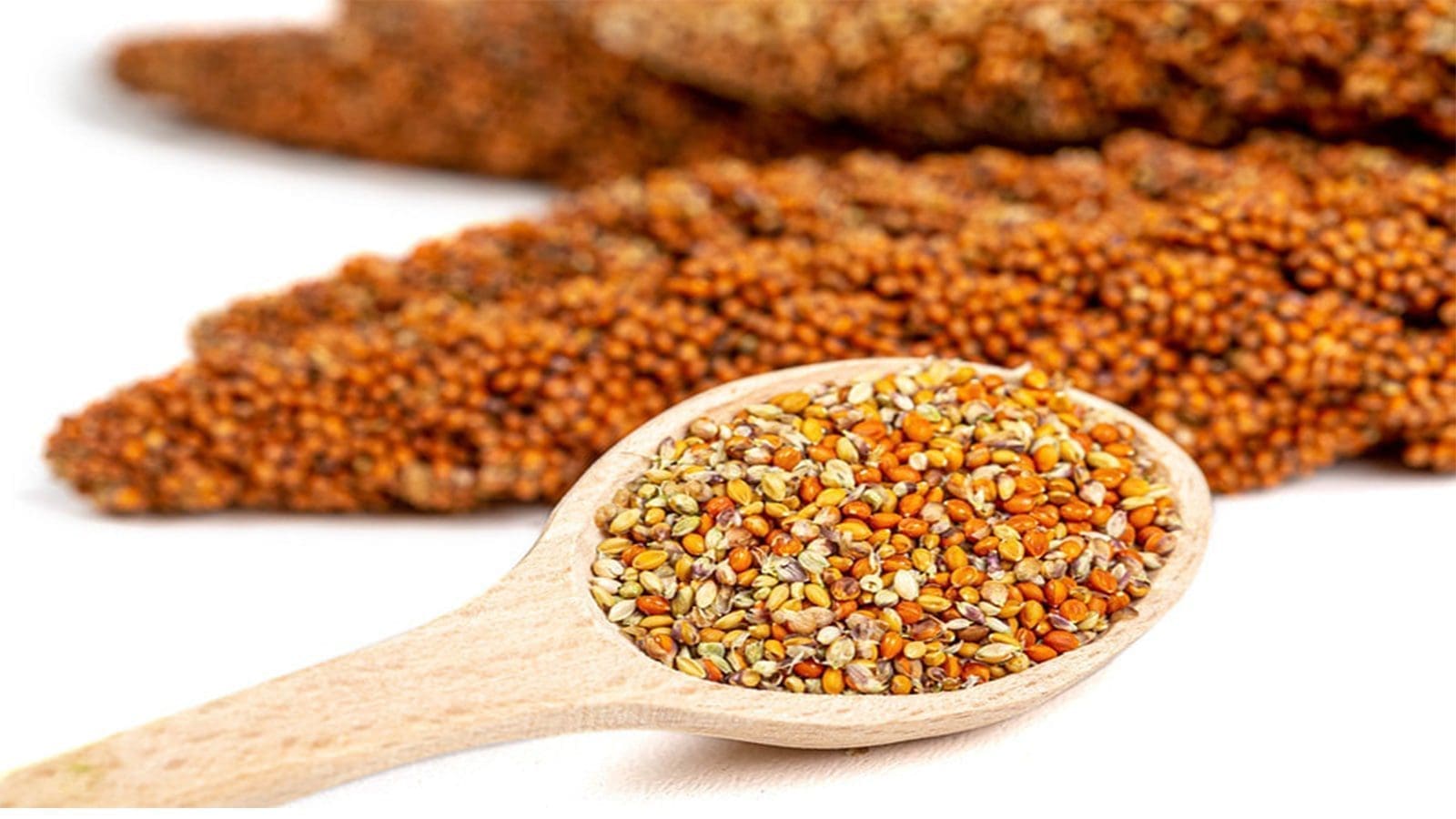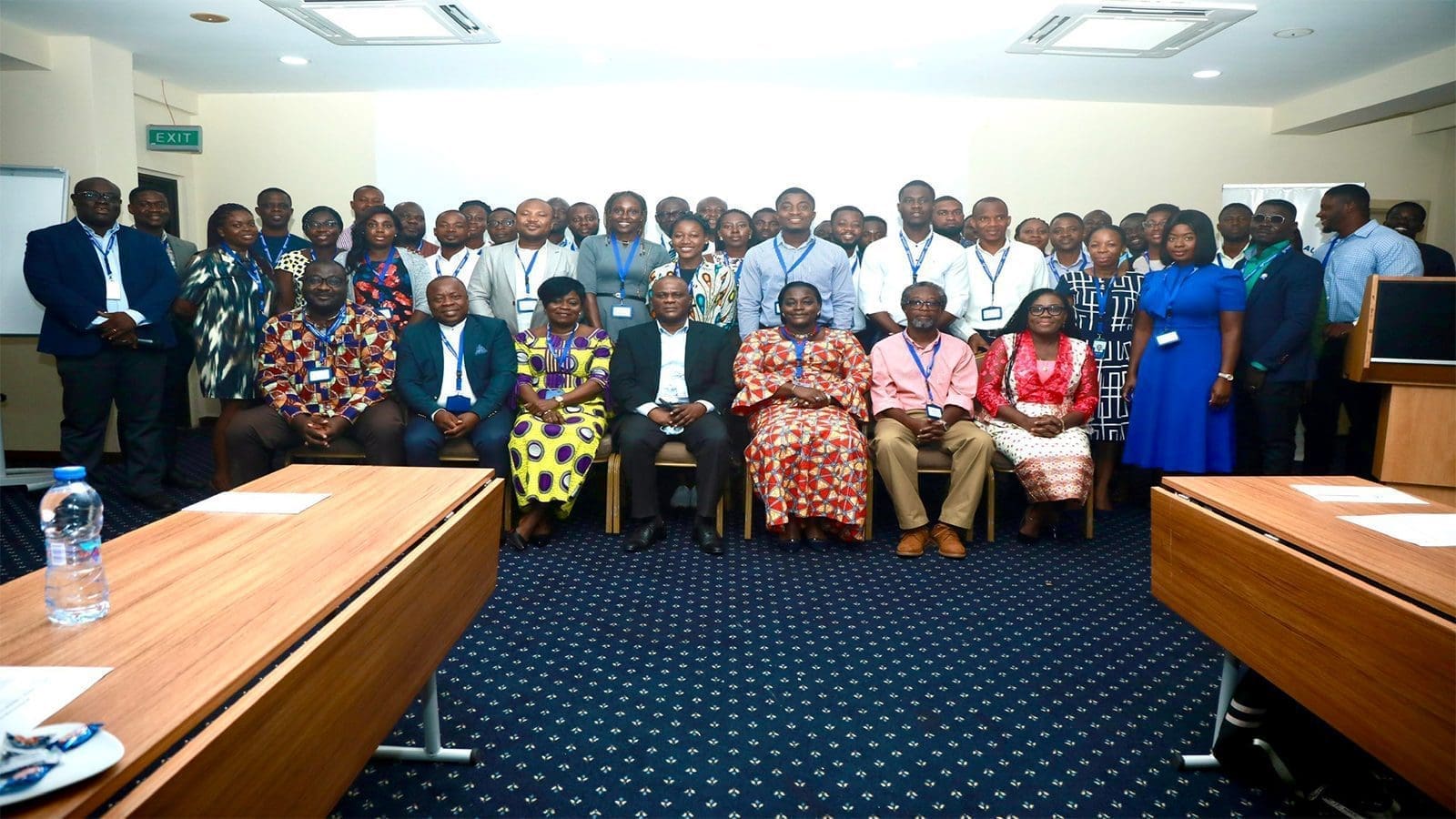KENYA – Dairy farmers in Kenya affiliated to Kieni Dairy, Nyeri County, a dairy company formed by six primary cooperatives, have received machines meant to enhance the quality of animal feeds they produce- a donation that will mark an improvement in the quality and quantity of milk production.
The farmers were mostly relying on traditional feeding practices like natural pastures, crop residues, cut-and-carry grass, forage crops and local feedstuff, as well as communal grazing which significantly inhibited their dairy cows’ milk production.
Using supplements for both energy and protein-rich feeds for dairy animals has been linked with increased milk production. Upon the realization of the same, farmers from Kieni started sending proposals to donors in order to source for capital to purchase machines for production of high-quality feeds.
26 group-members of Njung’wa Community Based Organization, forwarded a proposal to the World Bank through the Kenya Climate Smart Agriculture Project (KCSAP).
KCSAP is a programme jointly funded by the government of Kenya and the World Bank. It aims at increasing agricultural productivity and enhancing resilience and coping mechanisms to climate change risks in the targeted smallholder farming and pastoral communities.
The 26 members’ proposal was approved and was funded with Ksh920, 000 (US$ 8292.02) in the financial year 2020/2021 which they used to purchase a feed mixer and a hammer mill. Feed mixers are used in feed mills for the mixing of feed ingredients and pre-mixes. The mixer plays a vital role in the feed production process, with efficient mixing being the key to quality feed production.
If feed is not mixed properly, ingredients and nutrients will not be properly distributed and this means that the feed will not have nutritional benefit and would be bad for the animals that are consuming it.
On the other hand, a hammer mill is a farm machine which mills grain into coarse flour to be fed to livestock. The mill’s purpose is to shred or crush aggregate material into smaller pieces by the repeated blows of little hammers.
The members, whose targets go beyond eight litres of milk per cow per day, have significantly profited from the equipment provided which they now use to produce high quality feeds for their animals and subsequently increasing both quality and quantity of milk produced.
Additionally, the equipment which was purchased and installed after they rented a room at Gatuamba trading centre, has been of great help, as the feeds produced have been extended for use in other value chains including poultry, goats and pigs increasing production for the same.
The group Chairman Michael Ndiritu and Secretary David Gitonga expressed their gratitude to Nyeri Governor Mutahi Kahiga and area MCA Richard Kamuhia for making their dream a reality.
“We are grateful to the Governor, the MCA and the KCSAP team for facilitating the purchase of the equipment for us, as they have been of great benefit. We were also provided with rabbits for rearing and Hass avocados for nutrition improvement for which we are thankful for,” noted Ndiritu.
The farmers have also been trained by Kenya Agricultural & Livestock Research Organization (KALRO), a premier government research institution. An official from KALRO David Mbugua noted that the farmers have been trained on innovation practices, feed formulation, where to source feeds, how to grow and store quality forages for their livestock to ensure availability of feeds throughout the year, how to ensure quality milk and reduce cost in production among others.
Governor Kahiga urged the Nyeri residents to form more community groups so that they can benefit from such projects in order to enhance their lives.
“The County Government of Nyeri is committed to continue collaborating with KCSAP to increase agricultural productivity in the county seeing that agriculture is the backbone of our economy,” he said.


